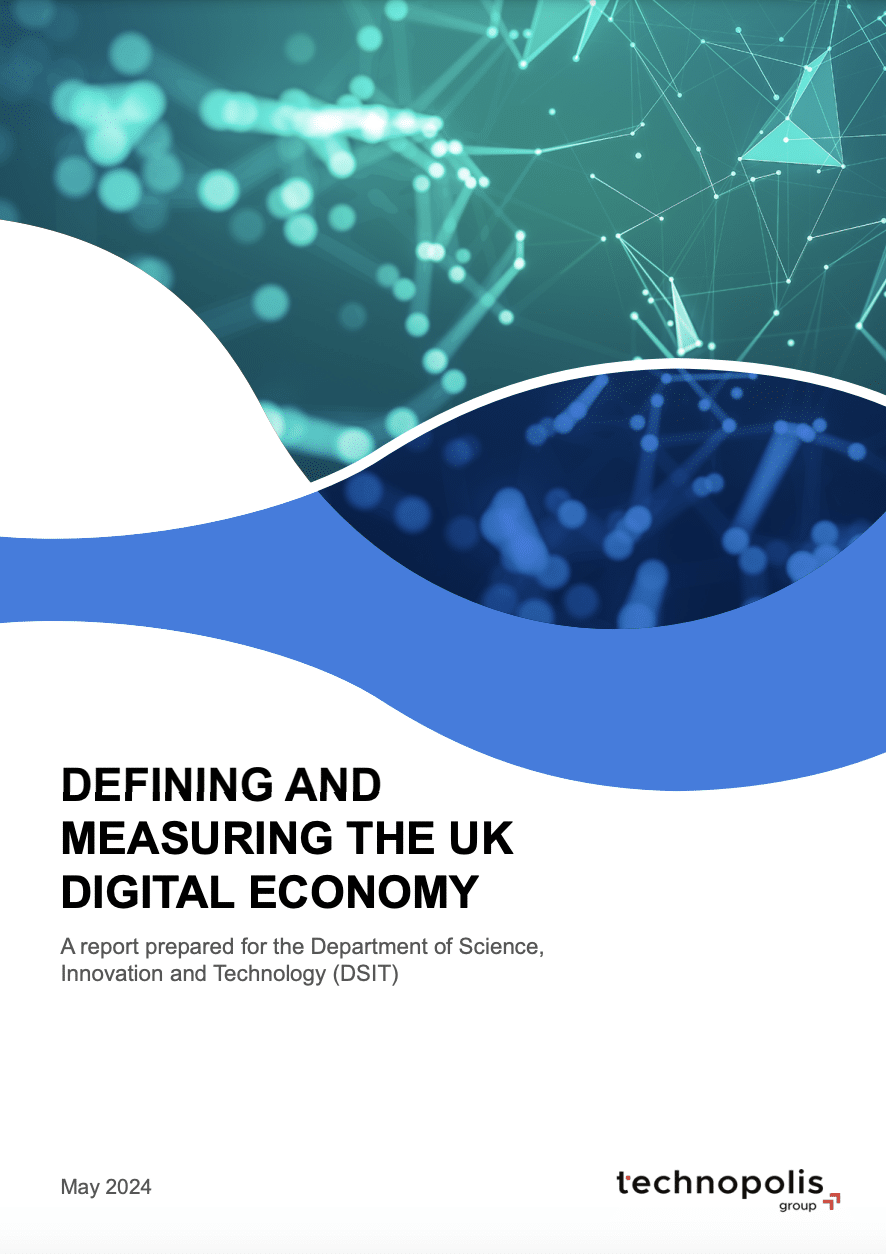Defining and Measuring the UK Digital Economy
Publication date: 27 September 2024 | Report language: EN
The degree of digitalisation in the economy has increased dramatically over the past decade, leading to an evolution in how the ‘digital economy’ is defined. Earlier conceptualisations of the digital economy focused on core industries producing ICT goods and services, but this approach no longer captures the pervasive role of digital technologies across all sectors. In contrast, more recent definitions tend to adopt a ‘digital inputs’ approach, which additionally includes economic activity enabled by the use of ICT goods and digital services, thus reflecting the spread of digitalisation across the economy.
The UK Government’s current statistical definition of the digital economy is based on the former approach and does not provide a definition that is comprehensive or granular enough for current policy needs. In this context, the UK Department for Science, Innovation and Technology (DSIT) commissioned Technopolis to develop a revised definition of the UK’s digital economy and a methodology to operationalise this definition into a series of metrics. Our report introduces this new definition and methodology, laying the groundwork for DSIT to measure and monitor the digital economy in a way that more effectively supports the Department’s strategy and setting the stage for better targeted and more impactful policy interventions.







